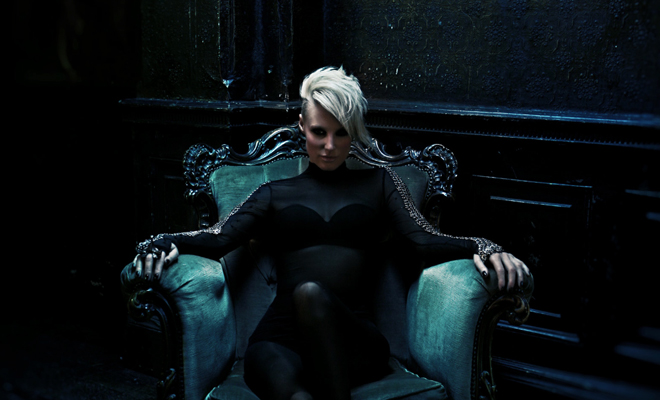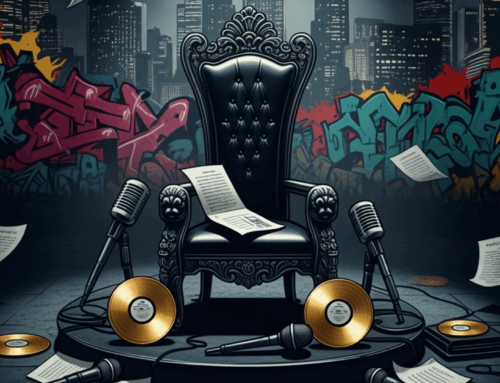Although with a visible underground or bubbling-under-the-surface niche, women remain out of the top ranks of EDM – unless Nervo or Krewella’s two singers get another interview about just how hard it is being a woman in the dance music world.
Occasionally, a major magazine or blog throws a bone with a “Sexiest Women in EDM” list, but when Paris Hilton, these days, poses in a bikini behind her pre-programmed equipment, an article like that is more insulting than helpful. Rather than draw attention to a producer’s skills, it reduces her to another “Hot or Not” category.
It’s no secret that, especially at the top festivals, women producers barely have a presence. That’s part of the reason HARD’s Gary Richards decided to plan a multiple-day festival in New York and Los Angeles focused solely on female DJs and producers.
With a major promoter realizing this, it shows there’s a glimmer of hope, and in some senses that EDM is becoming a bit better – but still not an even playing field yet – for women.
Getting Better
Richards’ decision may be the platform female producers and DJs need for better exposure. “Why not have more women involved and have a spotlight shine on them?” he explained. “I look at my artist page on people who’ve played HARD, and it’s kind of dude-driven. I’d like to balance that out more. It’s important to showcase more female talent in this space.”
 On the other hand, we’ve still got to see what Richards comes up with – it could very well end up being a great idea conceptually that goes bust in execution. After all, even when you’ve got DJs like Nicole Moudaber making regular appearances at Pacha NYC, CASSY doing sets over in Brooklyn, and others like JES, Ellen Alien, Maya Jane Coles, and Nina Kravitz getting exposure, at least 90 percent of a major club’s lineup ends up being male DJs.
On the other hand, we’ve still got to see what Richards comes up with – it could very well end up being a great idea conceptually that goes bust in execution. After all, even when you’ve got DJs like Nicole Moudaber making regular appearances at Pacha NYC, CASSY doing sets over in Brooklyn, and others like JES, Ellen Alien, Maya Jane Coles, and Nina Kravitz getting exposure, at least 90 percent of a major club’s lineup ends up being male DJs.
In a New York Times piece, Shawn Schwartz of record store Halcyon explained he tried a similar concept in 2010, but found he only had a small pool of talent to book. There could be a chance a similar HARD event meets the same fate.
Interviews and reputable lists like Resident Advisors’ round up now give a nod to Coles, Moudaber, and Kravitz, and added to this, web series Turn the Tables shows what female DJs have to do in a male-dominated field to get gigs and get ahead.
Still a Long Way to Go
Web series, interviews, and club nights aside, the past year showed just how far female DJs and producers have to go to experience just a fraction of success that someone like Calvin Harris, now the highest-paid DJ, receives.
It’s hard to forget Spinnin’ Records’ major PR misstep: that picture on Twitter with a CDJ looking like a stove top. Even when backlash quickly ensued, however, Spinnin’ didn’t apologize; rather, the top EDM label pulled out a classic gas-lighting trick: we’re “just joking” and you’re overreacting. But, did Spinnin’ forget it has Nervo on its roster?
But while Spinnin’ went with a clearly behind-the-times approach, articles drawing attention to female DJs appear progressive – while actually being a bunch of regressive garbage. The controversial XLR8R.com article involved interviews with prominent dance music producers but then quickly degenerated into the run-of-the-mill “girls can’t do math or science” argument. Or, in the case of EDM, this has become along the lines of, “Because women are less interested in machines (i.e.: all the gear and software needed for producing), they turn to singing and pop song structures.”
So, you might think, with more women supposedly taking the vocalist route, wouldn’t their pay be on par with what the producer receives? These days, unless you’re a pop star collaborating with a top EDM producer, you’ll still be shortchanged. In an expose focusing on lower-level dance music singers, The Guardian pointed out that pay and recognition are rare – or might not happen at all. Or, as C&C Music Factory and house group Black Box did to singer Martha Wash in the early ‘90s, a vocalist appears on the recording but isn’t credited, doesn’t appear in videos or performances, and ends up seeing only a very small amount from her work.
 Just like moving up in the workplace, mentorship becomes crucial for turning into a major star. After all, Guetta’s collaborations helped make Afrojack and Nicky Romero into semi-household names. And, if you’re a female DJ looking for exposure, you’ve got few role models and mentors to help pull you up. That’s not to say it can’t happen, however; after Carl Cox endorsed Moudaber in 2009, her profile significantly rose, but unlike Afrojack moving up to the festival-headliner status that Guetta has, her career is still limited to techno stages and clubs.
Just like moving up in the workplace, mentorship becomes crucial for turning into a major star. After all, Guetta’s collaborations helped make Afrojack and Nicky Romero into semi-household names. And, if you’re a female DJ looking for exposure, you’ve got few role models and mentors to help pull you up. That’s not to say it can’t happen, however; after Carl Cox endorsed Moudaber in 2009, her profile significantly rose, but unlike Afrojack moving up to the festival-headliner status that Guetta has, her career is still limited to techno stages and clubs.
Even then, as the Village Voice pointed out in a recent blog post, women like Moudaber, Coles, and Kravitz contend with the notion that they only found this modicum of success for simply being women. Or, on a more mainstream level, accusations of ghost producing frequently get leveled at Nervo. But, while their act, really, ends up being two hot blond girls behind a DJ booth, songwriting’s part of their background. So, with Calvin Harris making money off a songwriting contract, and thus boosting his musical credibility, why aren’t Nervo’s achievements given similar weight in the same mainstream sphere?
There’s really no answer to the conundrum of “Why aren’t more women in EDM?”, and remarks like Spinnin’ Records’ tweet and various “Hottest Female DJ” lists don’t seem to give it any resolution – or convince women that DJing and production are something they can do. Still, though, if a HARD event proves to a success, there’s a chance – still a small one for now – that female producers and DJs may just get that platform that eventually leads to better gigs and similar recognition.




